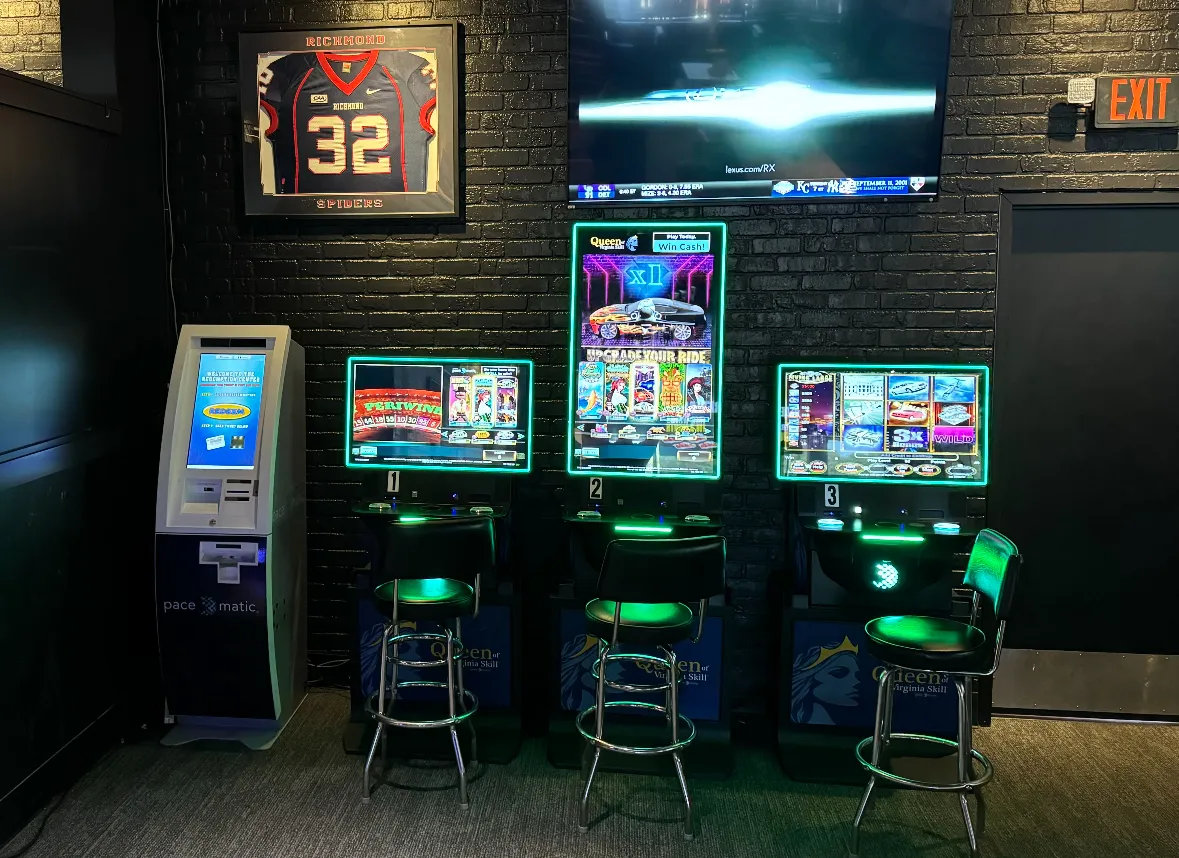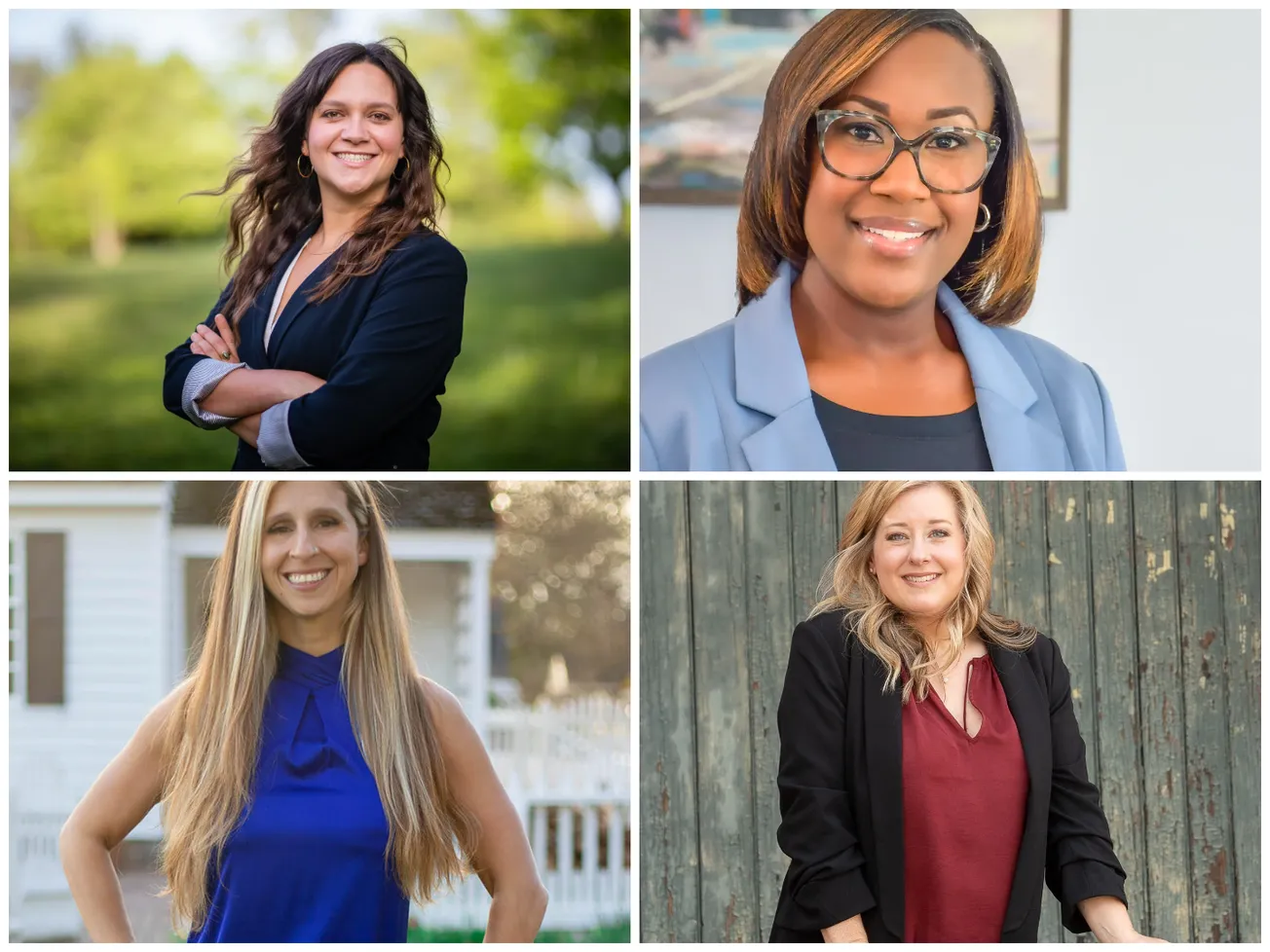Hanover judge rules Queen of Virginia skill games are legal, delivering win to small businesses
Court tosses gambling charge, declaring QVS2 machines as permitted under state law

Table of Contents
A Hanover County judge handed down a ruling Wednesday that could reshape the future of skill games in Virginia, siding with a convenience store owner who faced criminal charges for operating several Queen of Virginia (QVS2) skill machines.
Judge Hugh Campbell of the Hanover County General District Court dismissed the case against David Bogese, owner of the Breez-In Mart, after finding that the QVS2 devices at his store did not meet the legal definition of illegal gambling machines under state law.
The ruling marks a significant victory for small business owners across the commonwealth who have fought to keep the machines in their stores amid legal ambiguity and political pressure from the casino industry.
“It feels good to get this decisive ruling today defending the right for small businesses to operate within the law,” Bogese said after Wednesday’s hearing. “Today is a victory not just for our case and our business, but for small businesses across the commonwealth to take part in our free market and against the overreaches of government. I am looking forward to getting back to business as usual.”
The case and legal arguments
Bogese had been charged with a misdemeanor under Virginia Code §18.2-331, which prohibits possession of an “illegal gambling device.”
The charge stemmed from the presence of four QVS2 skill games, developed by Georgia-based software firm Pace-O-Matic, at his store in Hanover County. Prosecutors argued that the machines violated the state’s gambling statute, which bans devices that require players to insert a coin, bill, ticket, token, or similar object to activate gameplay.
But the defense countered that the QVS2 terminals in Bogese’s store did not require the insertion of any such object and were, therefore, fully compliant with Virginia law.
Attorneys Ryan McDougle and Bill Stanley — both of whom are also Republican members of the Virginia Senate — represented Bogese. They moved to dismiss the charge through a motion to strike the commonwealth’s evidence, asserting that prosecutors had failed to prove the QVS2 machines met the statutory definition of an illegal gambling device.
Judge Campbell ruled in favor of the defense, applying the “rule of lenity” — a legal doctrine requiring that ambiguities in criminal law be interpreted in the defendant’s favor. He found that because the QVS2 machine lacked any requirement for players to insert currency or objects into the machine, it did not qualify as a prohibited device under the law.
The judge also found that the statute itself was too vague, creating uncertainty for business owners trying to follow the law. His ruling echoed concerns raised repeatedly in recent years by small business advocates and gaming law experts.
A spokesman for Attorney General Jason Miyares, whose office was investigating the legality of QVS2 machines, did not immediately respond to a request for comment Thursday.
But Nick Larson, a spokesman for Virginians Against Neighborhood Slot Machines, criticized the ruling and accused Queen of Virginia’s backers of deliberately misrepresenting the law. In a sharply worded statement, Larson dismissed the reaction from Bogese’s legal team and allies as an attempt to confuse the public.
“The statement released by the Stanley Law Group is a clear attempt to muddy the waters and rewrite history,” he said.
According to Larson, companies like Pace-O-Matic have made repeated attempts to “enter Virginia’s gambling market through the back door,” accusing them of exploiting legal ambiguities and resisting regulatory enforcement. “The General Assembly has made it clear: so-called ‘games of skill’ are illegal,” Larsen continued.
"Any attempt to reframe these machines as lawful is simply an effort to circumvent the legislature’s clear intent.” He added that despite the industry’s continued legal and political maneuvering, opponents expect further attempts to reintroduce the machines under new pretenses. “We encourage our leaders to continue enforcing the laws on the books,” he said.
What are QVS2 games?
The QVS2 terminals represent a redesigned version of the Queen of Virginia Skill games that had become popular in bars, restaurants and convenience stores across the state.
Unlike earlier models, which included slots-style mechanics and coin operation, the QVS2 machines are entirely cashless. Players must check in with a store attendant before starting a game, and no coin, cash, or other tangible object is inserted into the device.
The games were launched in Virginia in August 2024 by Pace-O-Matic, which said it developed the new model specifically to comply with Virginia law. The company also voluntarily raised the minimum age to play the games from 18 to 21 in anticipation of possible legislative changes.
Prior to rollout, the company consulted with several prominent legal experts, including former Virginia Attorneys General Jerry Kilgore and Tony Troy, who — along with regulatory attorneys Jason Hicks and Stephen Piepgrass — issued a joint legal opinion stating that the games were legal under current statutes.
At the time, the QVS2 devices were still in a beta-testing phase across Virginia, with limited deployment intended to assess their performance and regulatory fit. It is unknown how many of the machines are currently operating statewide.
“Pace-O-Matic has consistently maintained that our QVS2 skill game is fully compliant with the plain language of the law in Virginia. We have never and will never operate outside the confines of the law, and this ruling affirms that,” Pace-O-Matic spokeswoman Rachel Albritton said in a statement Thursday.
“While this is a significant legal victory for Pace-O-Matic, the real winners are the hundreds of small businesses across the commonwealth, many of which are family-owned mom-and-pop shops, that depend on income from skill games to survive. Furthermore, this legal win underscores Pace-O-Matic’s dedication to fostering a responsible gaming environment while providing legal gaming options that support small businesses.”
Political and legal context
Skill games had existed in Virginia for decades in a largely unregulated space, but that changed in 2020 when the General Assembly passed legislation banning the devices. The move came amid concerns from some lawmakers and casino developers that the widespread use of skill games could undercut the profitability of newly approved casino projects.
During the height of the COVID-19 pandemic, the state granted a temporary reprieve, allowing skill games to remain in operation for one year to help small businesses survive the economic downturn. That reprieve expired in 2021. The Virginia Alcoholic Beverage Control Authority, which had been tasked with temporary oversight, ended enforcement efforts the same year, leaving skill game operators in legal limbo.
In the absence of clear regulations, businesses continued to operate the games until late 2023, when the Supreme Court of Virginia reinstated the state’s ban, reversing a lower court decision that had paused enforcement. That ruling once again cast uncertainty over whether businesses using newer skill games — like the QVS2 — were in violation of the law.
Earlier this year, during the 2025 legislative session, Virginia lawmakers weighed a series of proposals aimed at bringing regulation and structure to the skill game industry.
Among them was Senate Bill 1322, introduced by Sen. Bill DeSteph, R-Virginia Beach, which proposed a $1,200 monthly tax per gaming device. The bill would have directed 70% of the resulting revenue to a new Elementary and Secondary Education Fund, with the remainder split among local governments, infrastructure projects and programs addressing gambling addiction. The legislation was ultimately referred to the budget process for further discussion.
DeSteph defended the measure by pointing to a previous effort under former Gov. Ralph Northam that generated $138 million in revenue from 11,000 machines. “This is the same model, to keep it simple,” DeSteph said at the time, noting added safeguards such as ABC-issued tracking stickers and geolocation key cards to enhance accountability.
Despite support from some lawmakers who saw the legislation as a way to raise revenue while introducing regulatory oversight, similar efforts faced resistance from Gov. Glenn Youngkin, who vetoed related legislation last year.
In a separate effort, Sen. Bryce Reeves, R-Spotsylvania, introduced SB 1287 to create an independent Virginia Gaming Commission that would oversee all forms of legal gambling in the state, excluding the lottery.
The bill envisioned consolidating regulatory authority over casinos, sports betting and charitable gaming into a single agency, absorbing staff from existing state departments to improve oversight and reduce redundancy.
Supporters framed the proposal as a step toward modernizing and unifying Virginia’s gaming regulation.
“While I’m not a particular fan of gaming, I also face the reality that Virginia is becoming a gaming state,” said McDougle, addressing the Senate committee reviewing the measure. “We ought to have a little bit of a focus on how we’re doing that and make sure that we’re making good decisions.”
Ultimately, neither proposal made it into the revised budget lawmakers sent to Youngkin in February. While the governor has expressed support for establishing a gaming commission, he remains opposed to legalizing electronic skill games and has yet to endorse any plan that would bring them fully into a regulated market.
How Wednesday’s ruling in Hanover — which marked the first time a Virginia court has addressed the legality of the new QVS2 models in a criminal context — will impact future legislative efforts, remains to be seen.
The Virginia Merchants and Amusement Coalition (VA MAC), which represents store owners and game operators, issued a statement calling the ruling “a clear victory for small businesses.”
“Many of our members are operating legal QVS2 skill games as a means of supplemental income to keep their doors open,” said VA MAC President Rich Kelly. “Skill games give local small businesses, many of which are family-owned, additional income to pay wages, make improvements, and in some cases, keep the lights on.”
He added, “While we are thrilled with the outcome of this case, we continue to look forward to working with legislators on a solution to regulate and tax skill games in the future.”
Stanley, one of the two state attorneys representing Bogese, echoed that sentiment, framing the ruling as a blow to what he characterized as “casino-driven” efforts to squeeze small businesses out of Virginia’s emerging gaming industry. He said that the ruling should instill confidence in all small business owners who operate or want to operate skill games legally.
“We’ve shown that the law, as written, does not prohibit these machines. Now it’s time for lawmakers to bring clarity through responsible regulation.”
This article first appeared on Virginia Mercury and is republished here with permission. Virginia Mercury is part of States Newsroom, a network of news bureaus supported by grants and a coalition of donors as a 501c(3) public charity. Virginia Mercury maintains editorial independence.




